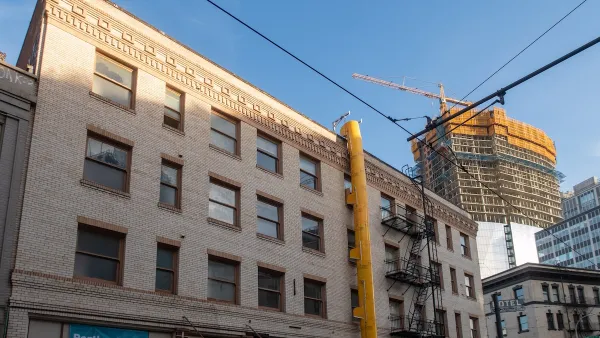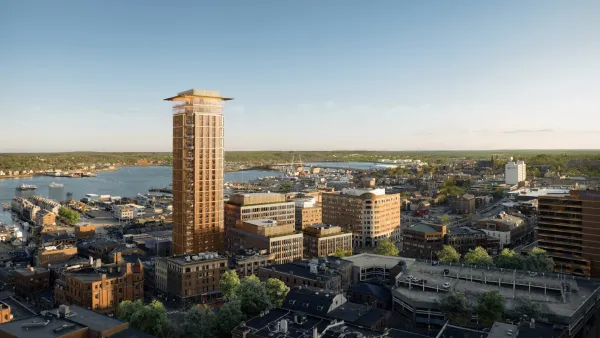The connection between land use and health comes clear in Portland, OR, where some of the poorest citizens face a four-hour round trip to the grocery store.
"When getting to market takes this much effort, epidemiologists consider it a threat to our collective health. Where we live determines where we buy food, which influences what we eat, factors into whether we're fat and can seal whether, someday, we get diabetes or have a heart attack.
Low-income and minority families, prone to obesity and dietary-related diseases, are also more likely to live in communities where nutritious food is hard to come by, the Robert Wood Johnson Foundation reports. These are otherwise known as "food deserts." Nationally, the typical low-income neighborhood has 30 percent fewer supermarkets than higher-income neighborhoods.
Parts of outer Northeast Portland popped out as having particularly poor access to food when the Coalition for a Livable Future analyzed grocery store locations using 2004 data.
'You have people literally living off of Plaid Pantries [a local convenience store],' says Brendan Finn, chief of staff to Portland City Commissioner Dan Saltzman, who oversees the Office of Sustainable Development."
FULL STORY: Portland's low-income neighborhoods are city's 'food deserts'

Planetizen Federal Action Tracker
A weekly monitor of how Trump’s orders and actions are impacting planners and planning in America.

Maui's Vacation Rental Debate Turns Ugly
Verbal attacks, misinformation campaigns and fistfights plague a high-stakes debate to convert thousands of vacation rentals into long-term housing.

Restaurant Patios Were a Pandemic Win — Why Were They so Hard to Keep?
Social distancing requirements and changes in travel patterns prompted cities to pilot new uses for street and sidewalk space. Then it got complicated.

In California Battle of Housing vs. Environment, Housing Just Won
A new state law significantly limits the power of CEQA, an environmental review law that served as a powerful tool for blocking new development.

Boulder Eliminates Parking Minimums Citywide
Officials estimate the cost of building a single underground parking space at up to $100,000.

Orange County, Florida Adopts Largest US “Sprawl Repair” Code
The ‘Orange Code’ seeks to rectify decades of sprawl-inducing, car-oriented development.
Urban Design for Planners 1: Software Tools
This six-course series explores essential urban design concepts using open source software and equips planners with the tools they need to participate fully in the urban design process.
Planning for Universal Design
Learn the tools for implementing Universal Design in planning regulations.
Heyer Gruel & Associates PA
JM Goldson LLC
Custer County Colorado
City of Camden Redevelopment Agency
City of Astoria
Transportation Research & Education Center (TREC) at Portland State University
Jefferson Parish Government
Camden Redevelopment Agency
City of Claremont





























